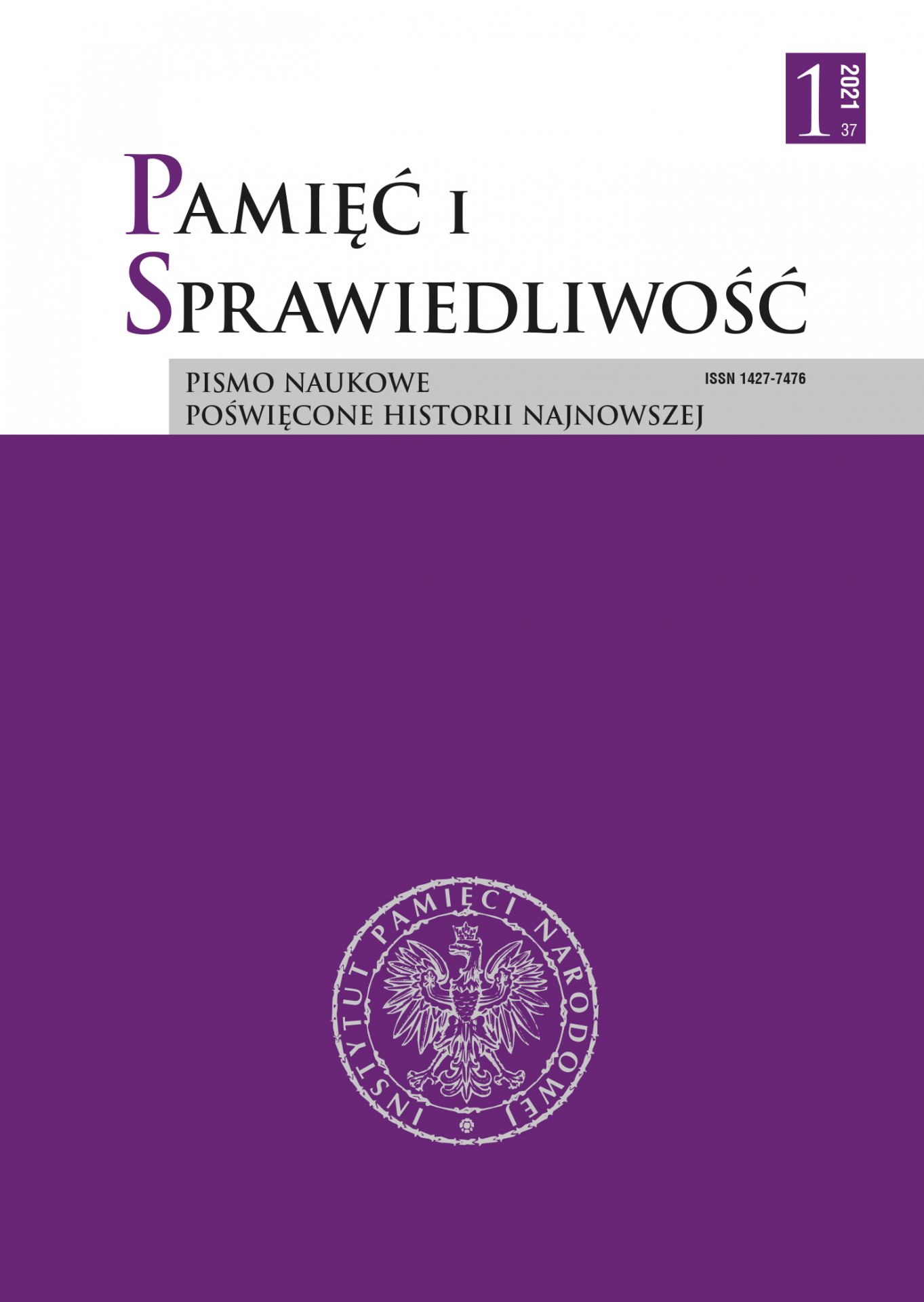The Contribution of Gustáv Husák to the Anti-Church Measures of the Communist Regime in the Years 1948–1950
The Contribution of Gustáv Husák to the Anti-Church Measures of the Communist Regime in the Years 1948–1950
Author(s): Tomáš ČernákSubject(s): History
Published by: Instytut Pamięci Narodowej
Keywords: Catholic Church;Communist Party;Gustáv Husák;Action K;Catholic Action;Bishops;Religion
Summary/Abstract: Gustáv Husák was one of the main figures in the campaign against the Church in Slovakia from after the Communist Party took power until his political downfall in 1950. Despite coming from a Catholic background, he became a convinced communist and obediently followed the instructions of the leadership of the Communist Party of Czechoslovakia. When he was entrusted with the task of dealing with the ecclesiastical issue in Slovakia, and thus with all the anti-Church interventions of the communist regime, he carried out orders in a disciplined manner. He was, however, mainly involved in measures against the Catholic Church. Gustáv Husák considered the Catholic Church to be compromised because of its activities in 1939–1945; he later used this factor in attacks against the Catholic Church and its highest representatives. He quite rightly saw the Catholic Church a danger to establishing the communist regime. His goal was to firmly bind all churches, and especially the Catholic Church, to the communist regime. After taking office as commissioner–chairman of the Slovak Office for Ecclesiastical Affairs, he pursued a tough anti-Church policy in Slovakia and participated in such measures of the communist regime against churches as the forcible establishment of a new leadership of the Banská Bystrica diocese, Action K and Action P. In particular, the last two actions were characterized by extreme brutality. Despite the fact that hedid not always agree with the decisions of the Communist Party leadership in the field of anti-Church policy, he always complied with them. He officially justified his actions with the alleged anti-state activity of Church representatives and religious orders. In public pronouncements, he did not question religious freedom, which, however, was to be limited to the performance of religious ceremonies. In his opinion, the Church should not be allowed to interfere in political life and express itself critically about the communist regime; on the contrary, the Church should be fully subordinated. Ironically, Gustáv Husák lost all his important political functions during the implementation of these anti-Church measures. His personal downfall, which culminated in his arrest and imprisonment, followed shortly afterwards. In prison, Husák also met with priestsand religious who had been imprisoned precisely because of his anti-Church measures. However, not even this fact changed Husák’s communist beliefs. Nevertheless, at a time when he held the highest state and party positions in Czechoslovakia, he played a significant role in the establishment of an independent Slovak ecclesiastical province.
Journal: Pamięć i Sprawiedliwość.
- Issue Year: 37/2021
- Issue No: 1
- Page Range: 138-168
- Page Count: 30
- Language: English

